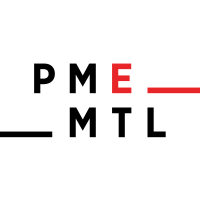Are you seeking financing for a project designed to improve the environmental performance of your business? You’re in luck, because there are a variety of programs that offer financial support and guidance to ensure that your first steps toward a greener business take you in the right direction, or to help move you farther along. A guide to help you find your way.
Improving the energy efficiency of your building, reducing greenhouse gas emissions generated by your manufacturing processes, optimizing waste management, acquiring green technology or launching a circular economy project are all options for incorporating ecoresponsibility into your company’s mission. In addition, finding financial assistance to achieve these goals is not a problem.
According to Laura Melo Amaya, Ecoresponsible Practices Consultant at PME MTL Est-de-the Île: “There are a wide range of financing programs offered by the various levels of government, sectoral associations and public and parapublic organizations, not to mention private risk capital funds.”
Financial assistance for executing innovative business projects is available to start-ups and established companies in a variety of forms, including direct loans, loan guarantees, grants, wage subsidies and risk capital investments.
The abundance of solutions may make it difficult for entrepreneurs to determine which program is best suited to their specific project. That’s where PME MTL comes in. Laura Melo Amaya continues: “We are here to help entrepreneurs find the right funding to move forward. If they have numerous projects aimed at making their activities greener, we help them find everything that’s available to them.”
Well-presented projects
One of the programs that is available is the Fonds Écoleader (Edoleader fund), an initiative of the Québec government that relies on a network of regional agents. PME MTL provides support through this program for businesses in the Montréal region.
Ms. Amaya, who is one of the two Fonds Écoleader Agents at PME MTL, explains: “Our role is to ensure that the projects submitted by businesses are eligible. If they are not, we can direct them to other available funds. We also help entrepreneurs to review their file before submission, because they are not always properly presented. Sometimes there is still work to be done to properly define the environmental objective and benefits.”
The financial assistance is intended for hiring experts to carry out studies (audit, feasibility study, diagnosis, etc.), develop action plans and provide businesses with support in implementing new practices. “The fund comprises a network of some 400 experts. We help businesses to find the right one by submitting a list of experts who meet the sought profile. Part of our role is to put managers into contact with potential partners,” she confirms.
The analysts at the Fonds d’action québécois pour le développement durable (FAQDD – Québec action fund for sustainable development) evaluate all of the projects, and those at Écotech Québec focus on projects involving clean technologies.
Since it was launched in 2019, more than 750 projects have been submitted in Québec. “In Montréal, 172 projects have received financing to date, including 115 in 2021. There are also new projects currently undergoing analysis”, Ms. Amaya concludes.
PME MTL also administers the Fonds Développement industriel et durable (industrial and sustainable development fund), which is intended specifically for manufacturing businesses, regardless of their sector of activity. This fund provides subsidies of up to $50,000, representing up to 25% of the total cost of a project.
According to Ali Taieb, Industrial and Sustainable Development Director at PME MTL Centre-Ouest: “The fund mainly finances two types of projects. The first is the acquisition or addition of technological equipment for improving the company’s production capacity or productivity through robotization and/or automation. The fund also finances projects involving a green shift for manufacturers that are looking to implement sustainable development practices or install green technologies. Projects may involve either of these components, or even both.”
“Our role is to provide businesses with support before they submit their application. If necessary, we can also refer them to other experts within the PME MTL network, or to external experts, in order to fine-tune their projects,” Mr. Taieb adds.
The only way forward
Laura Melo Amaya is of the opinion that businesses don’t have much choice in terms of moving toward sustainable development, in light of the evolving regulatory context, which justifies the introduction of all of these assistance programs.
Here are two examples: Last year, Ville de Montréal adopted a new responsible purchasing policy for all acquisitions of goods and services. The City intends to do business with suppliers who are prepared to give an account of their actions related to ecoresponsibility and to improve their practices on an ongoing basis. Montréal also adopted its Plan directeur de gestion des matières résiduelles 2020-2025 (2020-2025 master plan for the management of residual materials), which establishes an ambitious objective of becoming a zero waste city by 2030.
Contractors and governments have also established increasingly strict requirements for their suppliers. Making the shift toward ecoresponsibility is becoming the only way forward in terms of standing out in the public market.
There is also another excellent reason for accelerating the pace: The urgency to take action for the good of the planet is an issue that concerns everyone.
Click here for more information concerning available funds.
